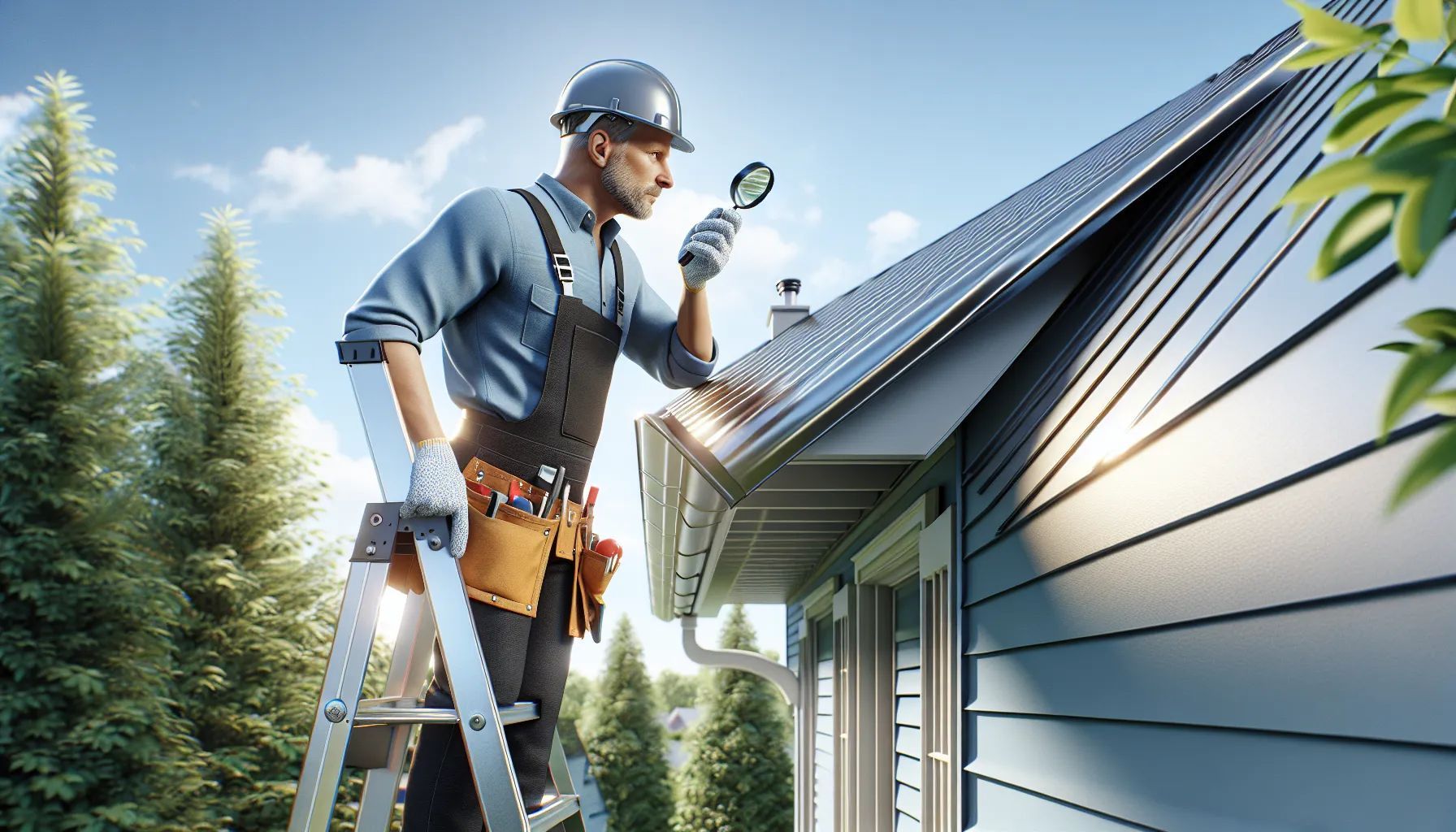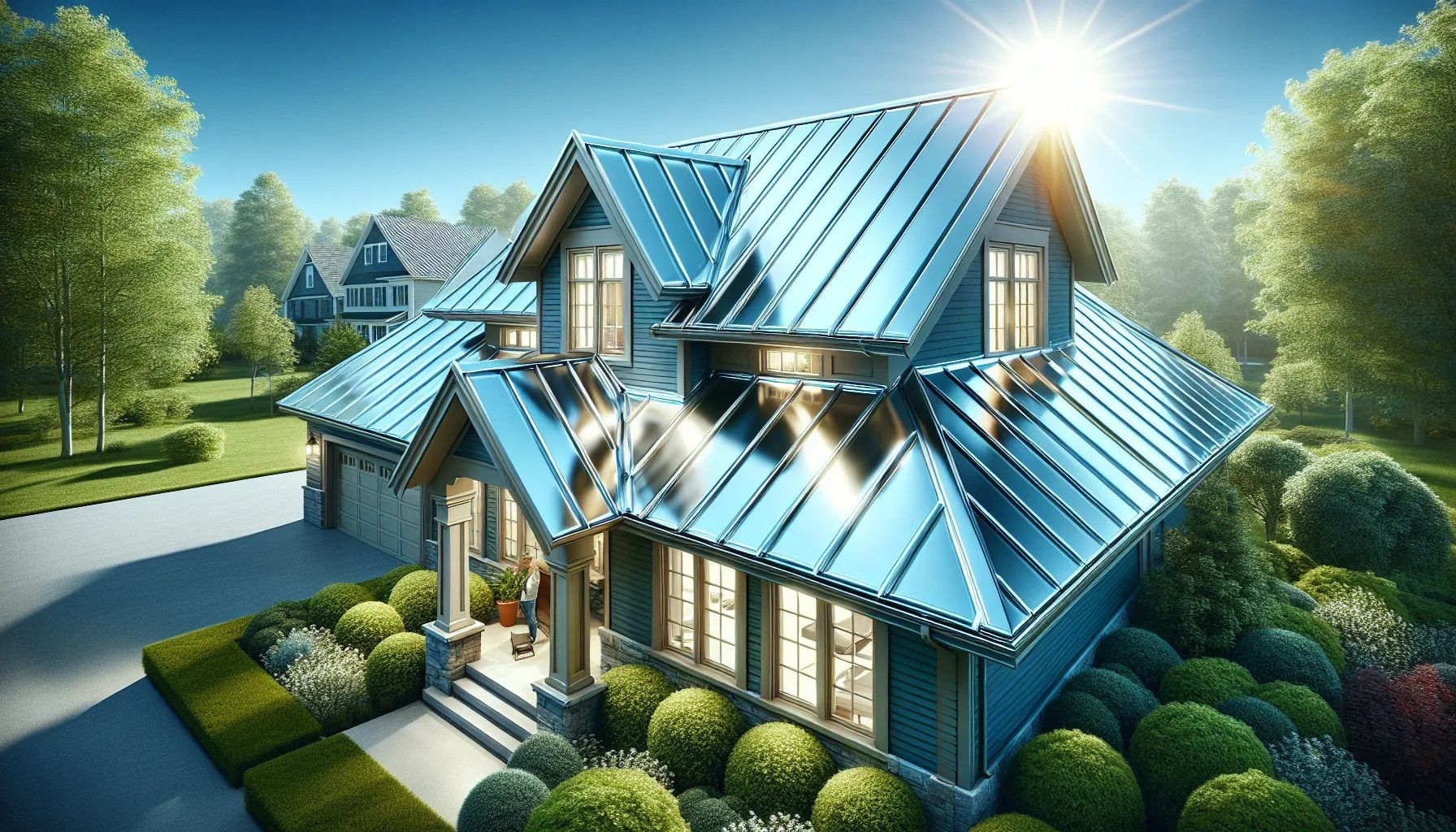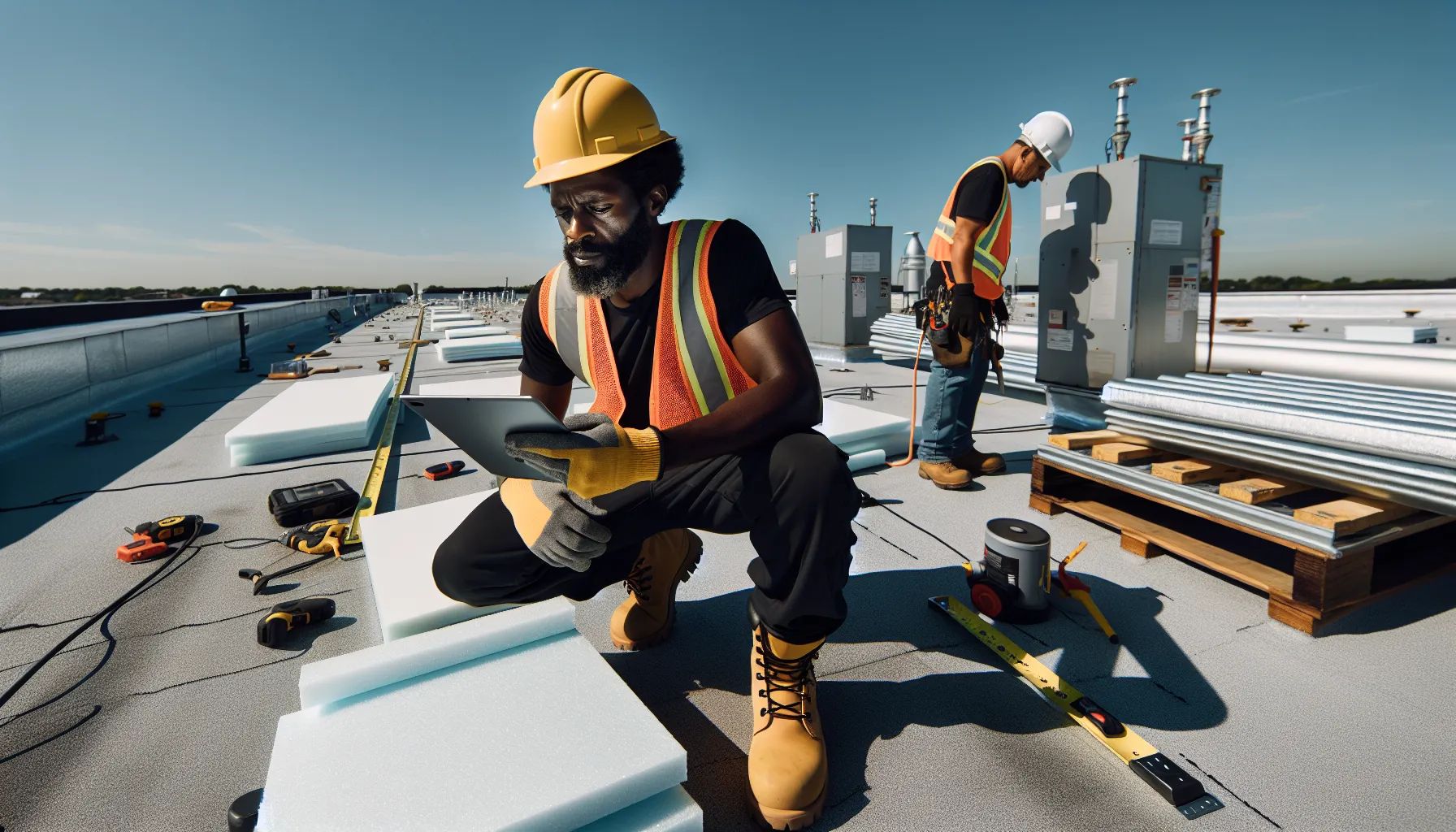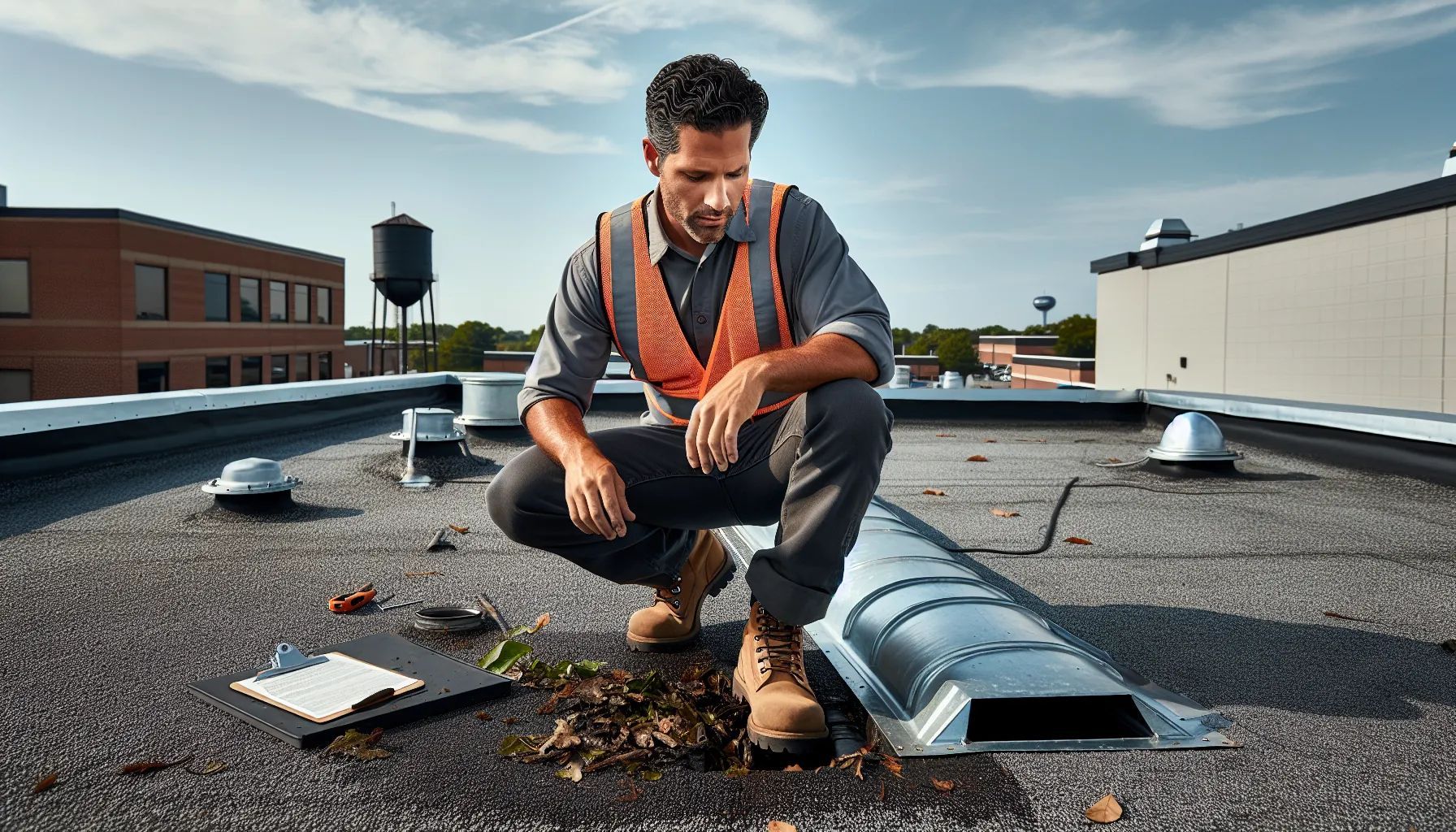Smart Ways to Finance a Metal Roof: Complete Guide to Loans, Costs & Savings

A metal roof is one of the best investments you can make in your home but let's face it - the upfront cost can be overwhelming. We've discovered that financing a metal roof doesn't have to drain your savings or leave you stressed about the expense.
While metal roofing typically costs more initially than traditional shingles the long-term benefits often justify the investment. We'll explore multiple financing paths that homeowners are using to make this upgrade affordable without compromising their financial stability.
Whether you're looking at home equity options specialized roofing loans or creative payment solutions we've uncovered strategies that work for different budgets and credit situations. The key is understanding which financing method aligns with your specific circumstances and long-term goals.
Understanding Metal Roof Costs and Value
Metal roofing represents a significant financial commitment that delivers exceptional returns through decades of protection and energy savings. We'll examine the real numbers behind metal roof financing to help you make an informed investment decision.
Average Installation Prices
Metal roof installation costs range from $8,000 to $25,000 for typical residential properties. Standing seam metal roofs cost $10 to $16 per square foot installed. Metal shingles run $7 to $12 per square foot with professional installation.
Labor accounts for 60% of total project costs. A 2,000-square-foot home typically requires $12,000 to $20,000 for complete metal roof installation. Premium metals like copper or zinc increase costs by 30% to 50%.
Regional factors affect pricing significantly. Northern states average 15% higher installation costs due to specialized weatherproofing requirements. Southern coastal areas add 10% to 20% for hurricane-rated fastening systems.
Additional components increase project totals. Underlayment adds $2 per square foot. Ridge vents cost $300 to $500 per 20-foot section. Flashing and trim work adds $1,000 to $3,000 depending on roof complexity.
Long-Term Return on Investment
Metal roofs deliver 85% cost recovery at resale according to Remodeling Magazine's Cost vs. Value Report. Energy savings average $200 to $500 annually through superior insulation properties. Insurance premiums drop 10% to 35% with impact-resistant metal roofing systems.
A 50-year lifespan eliminates two to three roof replacements compared to asphalt shingles. Maintenance costs stay below $200 annually for basic inspections and minor repairs. Tax credits and utility rebates offset 10% to 30% of initial installation costs in qualifying areas.
Property values increase 4% to 6% with metal roof upgrades. Buyers pay premium prices for homes with transferable metal roof warranties. Commercial properties see 8% to 12% value increases with metal roofing systems.
Financing metal roofs at current rates costs $150 to $300 monthly over 10 years. Total interest paid equals 15% to 25% of project costs. Energy savings offset 40% to 60% of monthly payment amounts.
Cost Comparison with Other Roofing Materials
| Roofing Material | Cost per Square Foot | Lifespan | 50-Year Total Cost |
|---|---|---|---|
| Metal | $10-$16 | 50+ years | $20,000-$32,000 |
| Asphalt Shingles | $3-$7 | 15-20 years | $30,000-$70,000 |
| Clay Tiles | $12-$25 | 40-50 years | $24,000-$50,000 |
| Wood Shakes | $8-$14 | 20-30 years | $32,000-$70,000 |
Metal roofing costs 200% more than asphalt initially but saves 50% over five decades. Asphalt shingles require replacement every 15 to 20 years at increasing costs. Metal eliminates multiple tear-off and disposal fees totaling $3,000 to $5,000 per replacement.
Clay tiles match metal's longevity but cost 25% more upfront. Wood shakes demand annual treatments costing $500 to $1,000. Slate roofing exceeds metal costs by 40% to 60% with similar durability.
Financing spreads higher metal roof costs across manageable monthly payments. Insurance savings and energy efficiency offset 30% to 50% of financing costs. Metal's minimal maintenance requirements save $10,000 to $15,000 over competing materials.
Types of Metal Roof Financing Options

Metal roof financing comes in four primary forms that match different financial situations and credit profiles. Each option offers unique advantages and specific terms that affect your monthly payments and total project costs.
Personal Loans
Personal loans provide $10,000 to $50,000 for metal roofing projects without requiring collateral. Banks and online lenders approve these loans within 24 to 72 hours based on your credit score and income verification.
Interest rates range from 6% to 36% depending on creditworthiness. Borrowers with scores above 720 typically secure rates below 10%. Fixed monthly payments spread across 1 to 7 years make budgeting predictable.
Personal loans work best for homeowners who:
- Own less than 20% home equity
- Want quick funding without property liens
- Prefer fixed interest rates
- Plan to sell their home within 5 years
Application requirements include proof of income, employment verification, and a minimum credit score of 580. Lenders evaluate debt-to-income ratios below 43% favorably.
Home Equity Loans and HELOCs
Home equity loans deliver lump-sum financing at interest rates 2% to 5% lower than personal loans. Repayment terms extend from 3 to 10 years with fixed monthly payments. Borrowers access up to 85% of their home's equity minus existing mortgage balances.
HELOCs function differently through revolving credit lines. Draw periods last 5 to 10 years, during which you pay interest only on borrowed amounts. Variable rates adjust monthly based on prime rate changes.
Key differences between these options:
- Home equity loans suit one-time roofing projects
- HELOCs accommodate phased installations
- Both require property appraisals costing $300 to $500
- Closing costs add 2% to 5% of borrowed amounts
Default consequences include potential foreclosure since your home secures the debt. Tax deductions apply to interest payments when funds improve primary residences.
Roofing Company Financing Programs
Roofing manufacturers partner with lenders to offer specialized financing covering $2,000 to $100,000. Terms range from 3 to 48 months with competitive rates starting at 0% for qualified buyers.
These programs streamline approval through:
- Same-day credit decisions
- Minimal documentation requirements
- Direct payment to contractors
- Flexible down payment options
Major manufacturers like CertainTeed and GAF provide financing through partnerships with GreenSky and Service Finance Company. Contractors handle application submissions during project estimates.
Benefits include bundled warranty extensions and preferred installation scheduling. Some programs waive credit checks for amounts under $5,000. Interest rates vary from 0% promotional periods to 26.99% based on credit profiles.
Credit Cards and Promotional Offers
Credit cards finance smaller metal roofing repairs or partial installations within existing credit limits. Introductory 0% APR periods extend up to 21 months on new cards, converting to 16% to 29% standard rates afterward.
Strategic credit card use involves:
- Opening cards with $10,000+ limits before projects
- Maximizing rewards points worth 1% to 5% cashback
- Transferring balances to new 0% offers
- Paying off balances before promotional periods end
Business credit cards offer higher limits reaching $50,000 for self-employed homeowners. Balance transfer fees typically cost 3% to 5% of transferred amounts.
Credit utilization above 30% negatively impacts credit scores. Multiple card applications within 14 days count as single inquiries for scoring purposes.
Qualifying for Metal Roof Financing

Securing financing for your metal roof depends on specific financial criteria that lenders evaluate during the application process. Understanding these requirements helps you prepare effectively and increases your approval chances.
Credit Score Requirements
Credit scores play a crucial role in determining your metal roof financing options and interest rates. Excellent scores above 720 unlock the best rates and simplest approval processes across all lender types. These borrowers often receive instant approvals with minimal documentation requirements.
Scores between 660-719 place you in the good credit category. Lenders typically approve these applications with competitive rates ranging from 7% to 12%. Many financing programs offer no down payment options for borrowers in this range.
Scores from 600-659 require more consideration from lenders. You'll likely need a 10% to 20% down payment to secure approval. Interest rates increase to 15% to 20% for this credit tier.
Credit scores below 600 create significant financing challenges. Lenders require down payments of 25% or more when they approve these applications. Interest rates often exceed 20%, making monthly payments substantially higher. Some specialty lenders work with lower credit scores but charge premium rates for the increased risk.
Income and Debt-to-Income Ratios
Lenders examine your income stability and existing debt obligations to assess repayment ability. Most metal roof financing programs require a debt-to-income ratio below 43%. This calculation divides your monthly debt payments by your gross monthly income.
Some specialized roofing lenders accept DTI ratios up to 55% for qualified borrowers. These flexible programs consider factors like home equity and payment history alongside the ratio. Higher DTI ratios typically result in stricter terms or higher interest rates.
Employment history matters significantly in the approval process. Lenders prefer applicants with two years of consistent employment at the same company or within the same industry. Self-employed individuals need two years of tax returns showing steady income.
Monthly income requirements vary by loan amount and lender. A $15,000 metal roof loan typically requires $3,000 to $4,000 in monthly income with a 43% DTI ratio. Higher loan amounts need proportionally higher income levels to maintain acceptable ratios.
Documentation Needed
Gathering the right documents before applying streamlines the financing process. Pay stubs from the last 30 days prove current income levels. Most lenders request two to three recent stubs showing year-to-date earnings.
Tax returns from the previous two years verify income consistency. W-2 employees provide their returns and W-2 forms. Self-employed applicants submit complete returns including all schedules.
Roofing contractors provide detailed estimates or signed contracts outlining project costs. These documents specify materials, labor charges, and project timelines. Lenders use this information to determine loan amounts and verify project legitimacy.
Additional documents include government-issued photo identification, proof of homeowners insurance, and bank statements from the last 60 days. Some lenders request utility bills to verify residence. Credit report authorization forms allow lenders to check your credit history. Energy Star certification documents qualify you for the 2025 Metal Roof Tax Credit offering 30% of material costs up to $1,200.
Government Programs and Incentives

Federal and state governments provide financial support for metal roof installations through tax credits and rebate programs. We'll explore programs that reduce your metal roofing costs by thousands of dollars.
Energy-Efficient Tax Credits
The Energy Efficient Home Improvement Tax Credit covers 30% of qualifying metal roofing materials up to $1,200 annually. ENERGY STAR® certified metal roofs qualify for this credit when installed on your primary residence. We recommend collecting receipts and manufacturer's certification statements for IRS documentation.
Metal roofs also qualify for a separate 10% federal tax credit capped at $500. Your roof must meet reflectance and emissivity standards established by the Energy Policy Act. Both credits apply to installations completed within the tax year you claim them.
Combined federal tax credits can save you $1,700 on metal roofing projects. We suggest consulting tax professionals to maximize available credits based on your specific installation. Energy-efficient metal roofs installed under the 2021 International Energy Conservation Code standards qualify for additional state-level incentives.
State and Local Rebate Programs
The Inflation Reduction Act allocated $8.8 billion to states and tribes for home energy upgrades including metal roofing. The HOMES Rebate Program offers $4,000 to $8,000 rebates for homeowners improving energy efficiency. We've seen homeowners combine federal tax credits with state rebates to reduce costs by 40%.
Local utility companies operate rebate programs that vary by region. Pacific Gas & Electric offers $500 rebates for cool metal roofs in California. Florida Power & Light provides $400 rebates for reflective metal roofing systems. We recommend contacting your utility provider before installation to confirm current rebate amounts.
State energy offices maintain databases of available rebates and application requirements. Most programs require pre-approval before installation begins. We advise scheduling energy audits to document baseline efficiency levels for rebate qualification.
FHA Title I Home Improvement Loans
FHA Title I loans provide government-backed financing specifically for home improvements like metal roofing. These loans offer fixed interest rates starting at 5% with terms up to 20 years. We've helped homeowners secure FHA Title I loans up to $25,000 for metal roof installations without home equity requirements.
Qualifying for FHA Title I loans requires credit scores above 620 and debt-to-income ratios below 45%. The FHA insures these loans through approved lenders reducing interest rates compared to conventional personal loans. We recommend comparing multiple FHA-approved lenders for competitive rates.
Processing times average 2-3 weeks from application to funding. Lenders disburse funds directly to contractors upon project completion. We suggest obtaining detailed project estimates from licensed contractors to streamline the FHA loan application process.
Choosing the Right Financing Option
Metal roof financing transforms a substantial investment into manageable monthly payments through various loan products. We'll examine each option's benefits and drawbacks to help match your financial situation with the most suitable financing solution.
Comparing Interest Rates and Terms
Interest rates directly impact your metal roof's total cost over the loan period. Personal loans typically carry rates between 6% and 36%, depending on credit scores and lender policies. Home equity loans offer lower rates, usually 3% to 12%, because your property secures the loan.
Loan terms range from 2 to 20 years across different financing options. Shorter terms mean higher monthly payments but less total interest paid. A $20,000 loan at 7% interest costs $3,761 in interest over 5 years versus $8,628 over 10 years.
| Loan Type | Typical APR Range | Common Terms |
|---|---|---|
| Personal Loan | 6% - 36% | 2-7 years |
| Home Equity Loan | 3% - 12% | 5-20 years |
| HELOC | 4% - 10% | 10-20 years |
| Roofing Company Financing | 0% - 25% | 6 months - 10 years |
Fixed-rate loans maintain consistent payments throughout the term. Variable-rate options like HELOCs fluctuate with market conditions, potentially increasing or decreasing your monthly obligation.
Hidden Fees and Closing Costs
Financing agreements often include fees beyond the advertised interest rate. Origination fees range from 1% to 8% of the loan amount, adding $200 to $1,600 on a $20,000 loan. Application fees cost $25 to $100, while credit check fees add another $30 to $50.
Home equity loans and HELOCs involve closing costs similar to mortgages. These expenses include appraisal fees ($300-$500), title search ($150-$400), and attorney fees ($500-$1,500). Total closing costs typically equal 2% to 5% of the loan amount.
Late payment penalties range from $25 to $40 or 5% of the missed payment amount. Some lenders charge annual fees on credit lines, adding $50 to $100 yearly. Document preparation fees and notary costs contribute another $100 to $300 to your financing expenses.
Review the Truth in Lending disclosure for complete fee information. Calculate the total cost including all fees, not just the interest rate, to accurately compare financing options.
Prepayment Penalties and Flexibility
Prepayment penalties discourage early loan payoff by charging fees when you pay more than scheduled. These penalties typically equal 2% to 5% of the remaining balance or several months' worth of interest charges. Some lenders impose penalties only during the first 2-3 years of the loan.
Flexible payment options allow extra principal payments without penalties. Making one additional payment annually on a 10-year loan reduces the term by approximately 2 years and saves thousands in interest. Bi-weekly payment schedules create 26 half-payments yearly, equaling 13 full payments instead of 12.
| Payment Strategy | Time Saved | Interest Saved (on $20,000 @ 7%) |
|---|---|---|
| One Extra Payment/Year | 2 years | $1,452 |
| Bi-weekly Payments | 2.5 years | $1,815 |
| Double Principal Monthly | 5 years | $4,314 |
Look for lenders offering payment date flexibility, allowing adjustments for seasonal income variations. Skip-payment options provide relief during financial hardship, though interest continues accruing. Some financing programs permit loan assumption, enabling home buyers to take over your metal roof loan.
Tips for Getting the Best Financing Deal
Securing favorable financing terms for our metal roof requires strategic planning and careful comparison of available options. We can maximize our savings by following proven tactics that help reduce interest rates and minimize total loan costs.
Shopping Around for Quotes
We start our financing journey by collecting multiple loan offers from different lenders. Online platforms like HFS Financial process applications quickly with minimal credit impact. We compare interest rates across personal loans ranging 6-36% APR and home equity options offering 3-12% APR.
Our comparison includes examining loan terms from 2-15 years and calculating monthly payments for each option. We request detailed breakdowns of origination fees (typically 1-8% of loan amount) and closing costs. Some lenders waive application fees for qualified borrowers with credit scores above 700.
We obtain at least three financing quotes within a 14-day window to minimize credit inquiries. Each quote includes total interest paid over the loan term and any prepayment penalties. We verify lender credentials through state banking departments and read customer reviews on independent platforms.
Specialized roofing loan providers often offer competitive rates below traditional personal loans. We explore manufacturer-affiliated financing programs that include extended warranty benefits. Credit unions frequently provide member rates 1-2% lower than commercial banks for home improvement loans.
Timing Your Application
We apply for financing after receiving detailed contractor estimates but before signing installation contracts. This timing gives us negotiating power with both lenders and contractors. Most loan approvals remain valid for 30-90 days.
We consider seasonal factors when timing our application. Spring applications often face higher demand and slower processing. Winter applications typically process faster with some lenders offering promotional rates during slower construction months.
Our credit reports get reviewed 30 days before applying to identify and correct errors. We pay down credit card balances below 30% utilization to improve our scores. A 20-point credit score increase can reduce interest rates by 0.5-1%.
We schedule applications when our debt-to-income ratio falls below 43%. Recent pay raises or bonus payments strengthen our application. We avoid major purchases or new credit accounts 60 days before applying for roofing loans.
Pre-qualification checks help us understand potential rates without hard credit pulls. We complete full applications only with our top 2-3 lender choices. Fast approval times averaging 24-48 hours let us secure funding before contractor schedules fill.
Negotiating with Contractors
We leverage multiple contractor quotes to negotiate better pricing on materials and labor. Contractors often reduce costs by 5-10% when presented with competitive bids. We request itemized estimates showing material costs separate from labor charges.
Our negotiations focus on payment schedules that align with our financing terms. We arrange milestone payments matching loan disbursements. Contractors accepting 50% down and 50% completion payments provide flexibility for our cash flow.
We discuss volume discounts for larger projects exceeding 2,000 square feet. Bundle deals including gutters or insulation save 10-15% compared to separate projects. We negotiate inclusive pricing covering permits and cleanup to avoid surprise charges.
Early booking discounts apply when we schedule installations during off-peak seasons. Fall and winter installations often cost 10-20% less than summer projects. We request price locks valid for 60 days to protect against material cost increases.
Written agreements specify all negotiated terms including warranty coverage and maintenance schedules. We confirm contractors accept our chosen financing method before finalizing deals. Clear payment terms prevent disputes and ensure smooth project completion.
Conclusion
Investing in a metal roof represents one of the smartest home improvement decisions we can make today. While the initial investment might seem daunting, we've shown that numerous financing paths exist to fit virtually any budget or credit situation.
The combination of energy savings, insurance discounts, and increased home value means we're not just buying a roof—we're securing long-term financial benefits. With government incentives and rebates available, there's never been a better time to make this upgrade.
We encourage you to explore the financing options that best match your financial profile. Whether it's through home equity, personal loans, or contractor financing, the right solution exists for your situation.
Remember that metal roofing isn't an expense—it's an investment that pays dividends for decades. By choosing the right financing strategy, we can enjoy all the benefits of metal roofing while maintaining our financial comfort and flexibility.
How much does a metal roof typically cost?
Metal roof installation costs range from $8,000 to $25,000, with labor representing about 60% of the total expense. The final price depends on factors like roof size, material type, regional pricing, and additional components needed. Despite the higher upfront investment, metal roofs offer 85% cost recovery at resale and provide long-term savings through reduced energy bills and lower insurance premiums.
What financing options are available for metal roofs?
Four main financing options exist: personal loans offering quick unsecured funding, home equity loans and HELOCs with lower interest rates, roofing company financing programs with competitive rates and warranty benefits, and credit cards for smaller projects. Each option has different requirements, interest rates, and terms, allowing homeowners to choose based on their credit situation and budget.
What credit score do I need for metal roof financing?
Credit scores above 720 qualify for the best interest rates and terms. Scores between 660-719 still receive competitive rates with standard terms. Those with scores between 600-659 may need larger down payments and face higher interest rates. Most lenders also require a debt-to-income ratio below 43% and stable income verification through pay stubs and tax returns.
Are there government incentives for metal roofing?
Yes, several programs exist. The federal Energy Efficient Home Improvement Tax Credit covers 30% of qualifying materials up to $1,200 annually, plus a separate 10% credit capped at $500. State and local rebate programs, including the HOMES Rebate Program and utility company incentives, offer additional savings. FHA Title I Home Improvement Loans also provide government-backed financing specifically for roofing projects.
How can I get the best metal roof financing deal?
Shop around and compare multiple loan quotes, focusing on interest rates, terms, and fees. Time your application strategically to maximize negotiating power with contractors and lenders. Improve your credit score before applying to qualify for better rates. Get multiple contractor quotes and negotiate pricing on materials and labor to reduce overall project costs.
How long do metal roofs last compared to other materials?
Metal roofs typically last 40-70 years, significantly longer than asphalt shingles (15-30 years) or wood shakes (20-40 years). This longevity means lower total ownership costs over time despite higher initial investment. Metal roofs also require minimal maintenance and offer better protection against weather damage, contributing to their superior long-term value.

